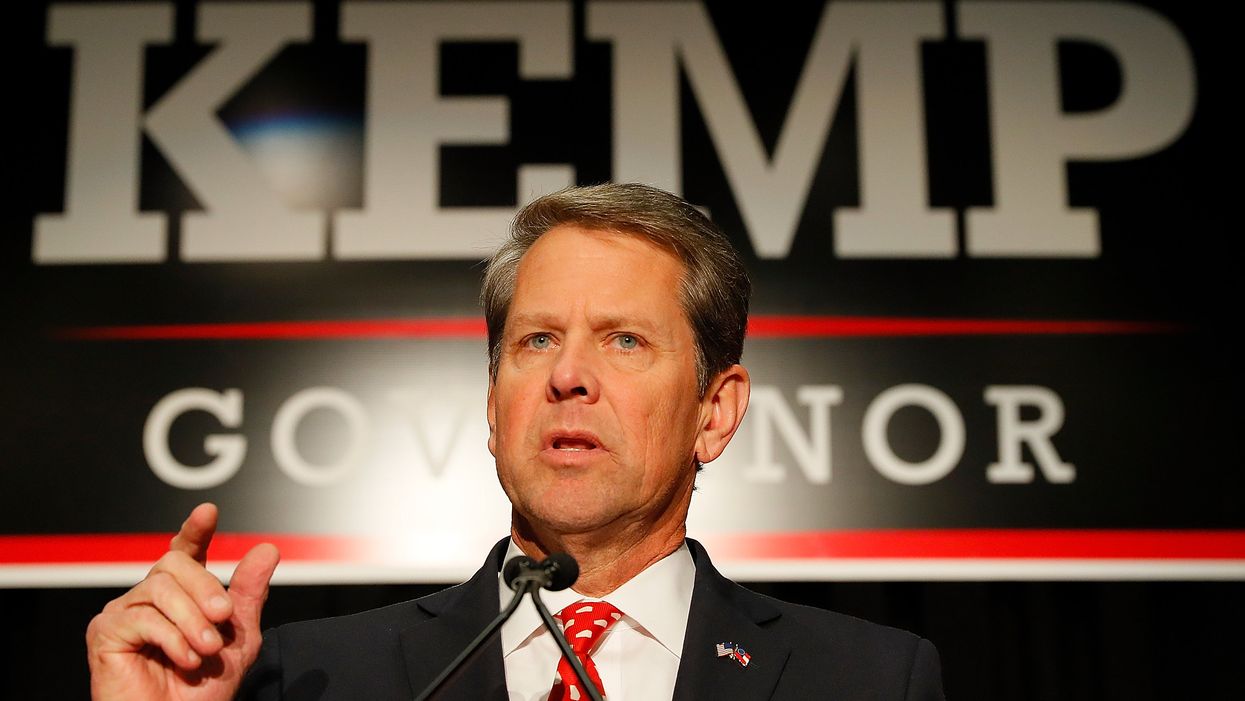A sensational charge levied by Republican Brian Kemp during his savage but successful campaign for governor of Georgia against Democrat Stacey Abrams has not yielded any criminal charges.
Georgia Attorney General Chris Carr, also a Republican, issued a three-page memo on Monday stating he did not find evidence to back Kemp's claim two years ago that Democrats had hacked into the computer system of the secretary of state, the position Kemp held when he ran.
He defeated Abrams by 54,000 votes out of 3.9 million cast, a margin of less than 1.5 points, and Democrats said Kemp's claim was one of his many ploys to gain political advantage — along with what they view as a multifaceted campaign of voter suppression
The claim originated from a report made by Georgia businessman Richard Wright that several election-related pages on the secretary of state's website were vulnerable to an enemy cyber invasion. Those claims were passed to a volunteer with the state Democratic Party and ended up in Kemp's office, which prompted his allegation.
But investigations of Wright's claims found them not to be accurate. While the web pages had been vulnerable, such problems had been fixed.
Did anyone actually hack the site? Prior intrusions into the site were actually cybersecurity tests conducted by the federal Department of Homeland Security, which had been contracted by Kemp's office to do the work.




















Trump & Hegseth gave Mark Kelly a huge 2028 gift